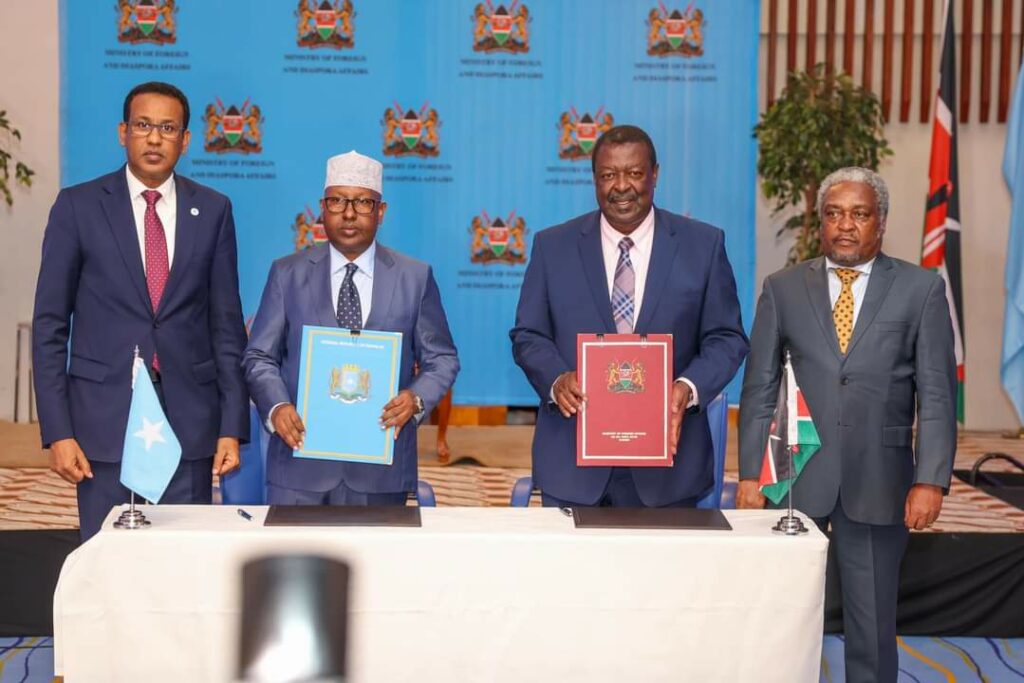
Garowe, (IDNE, Editorial) The promising agreements inked between Kenya and Somalia often fail to materialize beyond the ceremonial signing stage.
These agreements, spanning security, commerce, immigration, education, and health sectors, paint a picture of potential cooperation and mutual benefit. However, their stagnation underscores deeper systemic issues within the Somali government that impede effective implementation.
At the heart of the matter lies the Somali governmental system’s inability to translate agreements into action. The system, fragmented and lacking in the essential pillars of governance, fails to muster the requisite human resources, financial capacity, and legal authority needed for execution.
1. Human Resources: A functional government relies on capable human resources to drive policy and execute agreements. However, Somalia’s governmental apparatus suffers from inadequacies in expertise, efficiency, and capacity, hindering the practical realization of agreed-upon initiatives.
2. Financial Capacity: Effective governance demands financial resources to fund projects, maintain infrastructure, and sustain operations. Yet, Somalia’s financial constraints limit its ability to invest in the implementation of bilateral agreements, constraining the scope and pace of collaborative efforts with Kenya.
3. Legal Authority: A robust legal framework empowers governments to enact policies, enforce regulations, and uphold agreements. In Somalia, the absence of a comprehensive legal framework undermines the government’s authority to enforce agreements, leaving signed documents without the necessary legal backing for execution.
Furthermore, the shadow of political maneuvers, such as the covert intentions of certain factions within Somalia’s political landscape, casts doubt on the sincerity of commitment to bilateral agreements. The prevalence of clandestine agendas undermines transparency and erodes trust, creating additional barriers to implementation.
Addressing these challenges requires a multifaceted approach that addresses both immediate obstacles and underlying systemic deficiencies.
Strengthening Somalia’s governmental institutions, enhancing capacity-building initiatives, fostering transparency, and bolstering legal frameworks are essential steps towards fostering an environment conducive to effective collaboration with Kenya.
Conclusion, the recurrent failure to implement agreements between Kenya and Somalia underscores systemic governance issues within the Somali government.
These challenges is imperative for unlocking the full potential of bilateral cooperation and realizing the mutual benefits envisioned in signed agreements.
XiDDiG
Discover more from Idil News
Subscribe to get the latest posts sent to your email.






